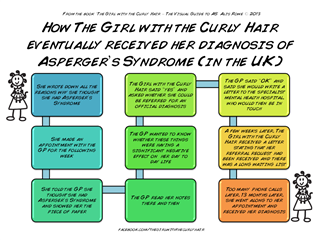I am trying to figure out if working through the diagnosis process is worth while. I am in my mid 40’s diagnosed as dyslexic when I was a child along with a bunch late development esp reading and writing and limited social capability. Recently my employer told me that I need to change how I interact with people as I was to direct and blunt. I took this badly. On the positive side I am a very good data analyst and can do tasks few other seam unable to grasp.
I have taken and re taken the online questions, tired or awake or stressed or relaxed and each time it comes out with a score that tells me I should see a specialist, so should I speak to my doctor or just carry on ?
help or advice would be really good.
thanks




